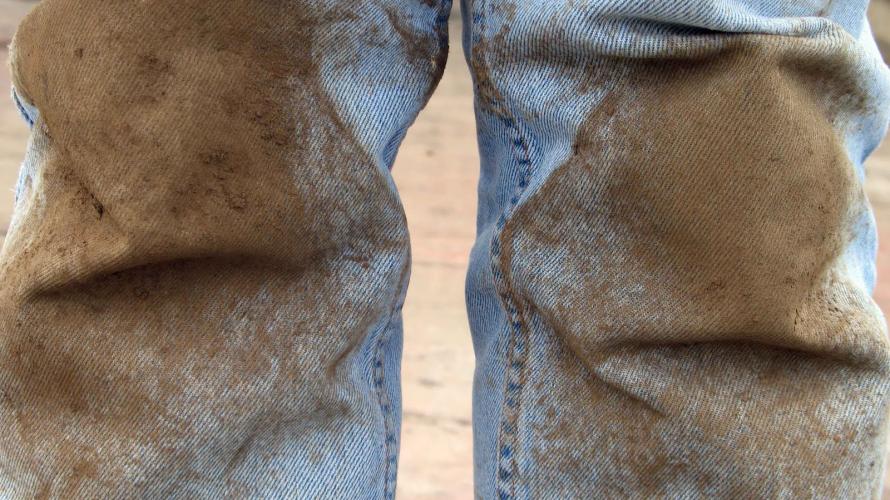
 Kathleen Clary Miller has written 300+ columns and stories for periodicals both local and national, and has authored three books (www.amazon.com/author/millerkathleenclary). She lives in the woods of the Ninemile Valley, thirty miles west of Missoula.
Kathleen Clary Miller has written 300+ columns and stories for periodicals both local and national, and has authored three books (www.amazon.com/author/millerkathleenclary). She lives in the woods of the Ninemile Valley, thirty miles west of Missoula.
A Washington Post writer quoted a Southern California resident as saying, “"What are we supposed to do, just have dirt around our house on four acres?" The woman in question doesn’t think it’s fair that she should have to conserve during the historic and potentially cataclysmic drought there---and has obviously never visited Montana. The dirt tattoo on the shin of my jeans sends the unspoken message that I live on 21 acres of free dust and gravel. Anyone would think Pig Pen was driving considering the cloud of dust my car kicks up behind me. And somehow I manage to survive without an expanse of lush lawn and a weekly car wash.
I am a native Southern California girl who goes back to the dark ages of the early 1950’s. Hence, I stay current on the news there, most especially the growing media coverage of the drought. When I worked for the Los Angeles Times my sales territory included the Eden from which our quoted woman in question hails: Rancho Santa Fe, a collection of estate ranches (no ranching involved here) that I used to think God was decidedly dedicating for the afterlife –reserved exclusively for those who had been really, really good on earth.
After reading this morning’s newspaper account I’m not so sure. The self-absorbed attitude of the quoted resident that exemplifies many other similar reactions (also quoted in the article) to water rationing in order to save their state from ruin gives me pause to wonder: instead of heaven, are we looking at the other option?
Meanwhile, back at the real ranchland, out here in the country where, granted, people opt to sometimes duke it out with seasonal severe weather, we take orders from Mother Nature and the land itself. It’s really quite simple: If it rains, the grass is green. If it doesn’t, it’s brown. Sprinklers don’t define us. We don’t feel entitled to blue skies, manicured landscape, and a well that can never run dry.
Montana rural life may not be picture perfect but as author Dejan Stojanovic writes, “Everything that looks too perfect is too perfect to be perfect. To accomplish the perfect perfection, a little imperfection helps.”
